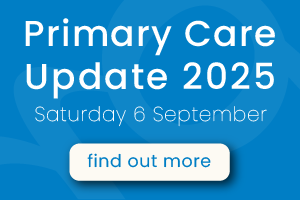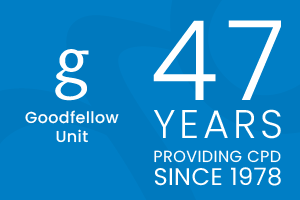On May 25, 2024, we recorded a comprehensive 5.5-hour webinar video featuring a panel of women's health experts.
Our specialists delve into women's health during midlife, with a particular focus on effective perimenopause and menopause management.
For many women, the hormonal changes associated with menopause present a multifaceted challenge, affecting them physically, psychologically, and socially. This recorded presentation aim to equip healthcare professionals with the knowledge and tools to improve their consultations and better support their patients through this crucial life stage.
This content will bolster your practice, supporting you to:
- Confidently introduce the concepts of reproductive hormones in consultations with women.
- Be confident in validating symptoms and sit with the possibility of hormonal aetiology alongside other differentials.
- Commence medical management of hormonal or non-hormonal management in perimenopause and menopause.
Price:
$350 inc GST
Programme
| TOPIC | SPEAKER |
|
Insights into midlife: more than just hormone therapy Nicky will explore the importance of understanding the impact of changing hormones on women's health from a patient's perspective. |
Nicky Pellegrino |
|
Reproductive physiology: mana wāhine Understanding the science behind the menstrual cycle and the role of hormones equips patients and empowers healthcare professionals to manage the symptoms experienced during this reproductive journey. In addition, the necessity for a unique, personalised management plan is underscored by considering the individual's experiences and drawing upon clues from their personal life and familial history. |
Samantha Newman |
|
Is it hormones? Empowering patient understanding and strengthening doctor-patient bonds through validation Effective history-taking to guide the patient through the symptoms. Using tools to help understand whether the symptoms are hormone-related or not. Looking at the role of estrogen and progesterone in the body and through the understanding of the menstrual cycle. |
Samantha Newman |
|
Female physiology in midlife: the science to support and validate our patients Stacy provides a comprehensive understanding of female physiology in midlife, focusing on the scientific basis behind perimenopause and menopause, and how these physiological changes impact weight management and overall health. She explores the role of weight training and cardiovascular training in midlife, elucidating the importance of different types of weight training and their effects on muscle mass, metabolism, and hormonal balance in women. |
Stacy Sims |
|
The positive role of non-hormonal medications When are non-hormonal options indicated, why do they work and why can we be confident about this approach in indicated cases? Helen will help you confidently offer non-hormonal management options for menopause and perimenopause, emphasizing a positive and informed approach. |
Helen Roberts |
|
Discussion: Case studies on non-hormonal management of menopause Using case studies, the panel explore how lifestyle and non-hormonal options were commenced, counselled and symptom improvement and side effects. Demonstrate how as HCPs we can positively use non-hormonal options to support women in mid-life and beyond. |
Rachel Copland, Olivia Smart, Kate Rassie. |
|
Understanding how and why MHT is not one-size-fits-all all How to start a patient in the perimenopause on MHT and its application to postmenopause. What to do with symptoms post-initiation, what to do at the first review, 10-year plan, etc. Samantha will also overview the medication's safety profile, the risks to the individual, and confidence in improving wellbeing. |
Samantha Newman |
|
Discussion: MHT problem-solving and common questions |
Samantha Newman, Olivia Smart, Kate Rassie. |
|
More than just me - Ruahinetanga in the whare [home] and the mahi [work]: It's about the whānau [family] Highlighting the interconnectedness of family, work, and mental well-being during menopause and women's midlife health, emphasizing this transitional phase's social impact and contextual significance. Exploring how menopause and hormonal changes impact women's mental health and workplace performance, with a focus on addressing symptoms of burnout and low confidence and providing validation and support for women experiencing work-related distress during this life stage. |
Janice Hemi, Louise Kuegler |
|
Pelvic health: more than just vaginal dryness Olivia will cover an understanding of the anatomy physiology of genital health, emphasizing the impact of genitourinary syndrome of the menopause (GSM) beyond sexual health. A holistic approach to genital health addresses its effects on bowel, bladder, pelvic, and sexual health. Cultural safety and respectful practice is also covered. |
Olivia Smart |
Presenter

Samantha Newman
MBChB BSc (hons) PGDipOMG
Honorary Lecturer at the University of Auckland
Adjunct Research Associate at the University of Monash
Sam qualified from Bristol University Medical School in 2010, starting clinical training in North-west London, and subsequently started Obstetrics and Gynaecology Specialist Training. Moved to New Zealand in 2013 and has been working as a GP since 2015 becoming a Fellow of the RNZGP College. Sam established FemaleGP in 2016 to improve access to focused healthcare for women.
In 2020-2021 Sam was the Clinic Lead of a GP-led prolapse and incontinence clinic at Hawkes Bay Hospital. She works as a Forensic Medical Examiner for sexual assault, and in General Practice at a local family practice.
It has always been Sam's ambition to focus on women's health and run a specialist clinic. She regularly meets with specialist healthcare providers in women's health, particularly menopause and reproductive hormone medicine, from all over the world to ensure she delivers quality healthcare.
Presenter

Janice Hemi
Janice is an experienced Māori senior leader (i.e. Office of the Ombudsman, Regional Public Health, Oranga Tamariki – Ministry for Children, Human Rights Commission) who has been providing coaching and professional supervision to public sector practitioners and managers for over 20 years. She is passionate about supporting wāhine as they navigate their way through an increasing complex and everchanging public sector environment and is mindful in her coaching of the impact that menopause can have for some women on their workplace performance. Her qualifications include a Master of Public Management, NZIM Certificate in Management, Understanding Unconscious Bias, and Team Leader capability.
Janice will highlight the importance of storytelling in health, and particularly when we engage with our indigenous communities. She will highlight how through cultural safety we can all improve our practice and journey with our patients.
Presenter
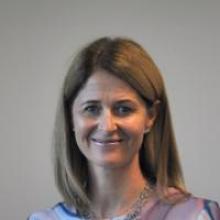
Louise Kuegler
Louise is an experienced Specialist General Practitioner who is passionate about women’s hormonal health, especially in the midlife. She holds Fellowship from the Royal New Zealand College of General Practitioners, Postgraduate Diploma in Obstetrics & Gynaecology and Australasian Nutritional and Environmental Medicine qualifications.
Louise is a passionate teacher at the University of Auckland. She is a long standing member of the Goodfellow Education team at the university, and has released over 100 continuing medical education podcasts for primary care. She has been involved in many webinars, education days and conferences.
Having completed the International Menopause Society training, and a member of the Australasian Menopause Society, Louise is up to date with the latest evidence based care for midlife women and provides a holistic approach to their care.
Presenter
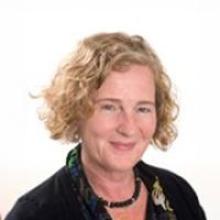
Helen Roberts
Helen is a Consultant at the ADHB Contraception/Menopause clinic, a First Certifying Consultant at the Epsom Day Unit, an Honorary Associate Professor of Women’s Health at the University of Auckland, and a Pipelle/Jadelle/IUD insertion trainer.
After Helen's medical degree at Trinity College Dublin, she worked at the Rotunda Hospital and then King’s College Hospital in London before coming to New Zealand and joined Family Planning, becoming the Medical Director and National Medical Spokesperson from 1988-1992. In 1991 Helen completed the MPH at Yale University in New Haven before taking up an academic position in the Department of Obstetrics and Gynaecology, University of Auckland. Helen was Associate Professor of Women’s Health until retirement at the end of 2017. At present, she continues her contraception and menopause clinic at Greenlane Clinical Centre and works as a certifying consultant at Epsom Day Unit.
Assoc Prof Roberts provides expert commentary for the Women's Health issue of Sexual Health Research Review.
Presenter

Olivia Smart
MBBS, Dip Obs, FRANZCOG
Olivia is a specialist gynaecologist based in Christchurch New Zealand. She obtained her medical degree from University College London and undertook post graduate studies at Imperial College before relocating to New Zealand to complete her fellowship training in Obstetrics and Gynaecology in 2005.
Presenter

Stacy Sims
MSC, PHD
Stacy is a forward-thinking international exercise physiologist and nutrition scientist who aims to revolutionize exercise nutrition and performance for women. She has directed research programs at Stanford, AUT University, and the University of Waikato, focusing on female athlete health and performance and pushing the dogma to improve research on all women.
Her contributions to the international research environment and the sports nutrition industry has established a new niche in sports nutrition; and established her reputation as the expert in sex differences in training, nutrition, and health. This paradigm shift is the focus of her famous "Women Are Not Small Men” TEDx talk.
Presenter
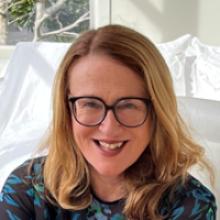
Nicky Pellegrino
Nicky Pellegrino is an award-winning journalist, writing about health, science and lifestyle topics for a number of publications and has a regular health column in the NZ Listener magazine. Her non-fiction title about menopause Don’t Sweat It: How to Make ‘The Change’ a Good One was a bestseller. She is also the author of 15 bestselling novels, including Marry Me in Italy, Tiny Pieces Of Us and To Italy, With Love. Her stories have readers around the world and have been translated into over 12 languages. Raised in the UK, she now lives in Auckland, New Zealand with a husband, an adopted greyhound and a lot of books.
Presenter

Kate Rassie
Dr Kate Rassie is a consultant endocrinologist at Monash Health and at Jean Hailes for Women’s Health, Melbourne. She is also a PhD candidate at Monash Centre for Health Research and Implementation, Monash University.
Kate completed her undergraduate medical training at the University of Auckland, and her physician and core endocrinology training in Auckland, before moving to Melbourne for fellowship and post-graduate studies in 2020.
Her particular areas of clinical and research interest are women’s health, female reproductive and menstrual disorders, endocrinology in pregnancy and lactation, menopause and MHT, obesity and weight management, and all areas of diabetes (including general, T1DM, pre-conceptual diabetes management, and diabetes in pregnancy).
Presenter

Rachel Copland
Rachel is a General Practitioner who applies a holistic approach to women’s hormonal health. She holds Fellowships from the Royal New Zealand College of General Practitioners and the Australasian Society of Lifestyle Medicine, alongside a postgraduate diploma in Paediatrics and certificate in Obstetrics & Gynaecology. As a member of the Australasian Menopause Society, Rachel stays updated on the latest research to support women through menopause and beyond, in both primary care and menopause clinic (Oxford Womens Health, Queenstown) settings. She is passionate about educating, empowering, and supporting her patients to optimise their health and wellbeing.
